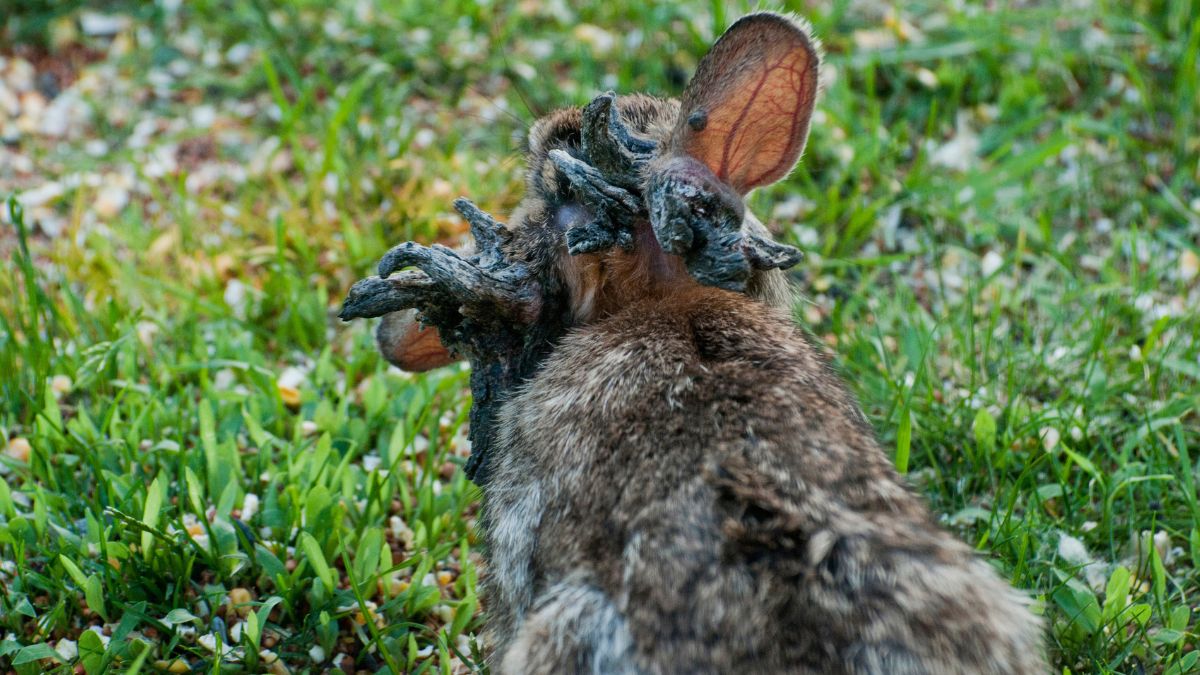Northern Colorado—specifically a town called Fort Collins—has recently made headlines for its rabbit population after it was revealed that several of them had long black tentacles growing all over their bodies. And while this development is something currently gaining national attention, it’s not exactly a new thing for the state, its residents and its bunnies. We have everything you need to know about the rabbits with tentacles, including what a few locals told Woman’s World about the animals, below.
What’s behind the ‘tentacle’ growths on Colorado rabbits
Over the past couple of weeks, several Northern Colorado residents have noticed that the cottontail rabbits in their yards and up on the mountains have had some unusual growths on their heads that look like horns to some and tentacles to others.
It’s called Shope papillomavirus—or papillomas—and was named after Dr. Richard E Shope, the scientist who discovered the disease back in the 1930s after they first showed up in Iowa and Kansas. Since then, more knowledge on the disease has become available, including details on whether it’s harmful to the animals and if it can spread to things like dogs and cats.
“This virus is specific to rabbits and does not cause disease in other species,” the Colorado Parks & Wildlife website (CPW) reads. “There is a risk of transmission to domestic rabbits, especially if rabbits are housed outdoors where they may contact wild rabbits or biting insects. In domestic rabbits, the disease is more severe than in wild rabbits and should be treated by a veterinarian.”

The state organization also shared that “the growths have no significant effects on wild rabbits unless they interfere with eating/drinking,” and then, as of now, it’s believed that “Most infected cottontails can survive the viral infection, after which the growths will go away.”
Because of that, they don’t recommend “euthanizing rabbits with papillomas unless they are interfering with the rabbit’s ability to eat and drink.”
Fort Collins residents react to the strange rabbit sightings
After the news about rabbits with tentacles went viral online, Woman’s World reached out to several different people in the Fort Collins area, where this writer happens to be from.
“The first time I saw something about those things on the rabbits was last year,” my sister-in-law, Brooklin Hall, said in a statement. “It must be really bad this year, though, because now I’m seeing it everywhere.”
Others, like my grandmother Jean Mosness, said that while she hasn’t seen these rabbits in her backyard or on her walks around the town’s beloved Horsetooth Mountain and Reservoir, all of this new publicity on the topic has made her want to become more alert and in tune with what’s happening to the animals in her hometown.

Steven Milligan/Getty
“Yuck,” the 77-year-old mother of two said. “I guess I’ll look more closely at our rabbits now.”
And she’s not alone in thinking that. Several other Fort Collins, Colo., residents have been on high alert these past couple of days, hoping to see these infected rabbits in the flesh. According to the CPW, doing so will be easy because these creatures are highly recognizable due to their “Black nodules on the skin, usually [on] the head” as well as the growths that “can sometimes become elongated, taking on a horn‐like appearance.”






